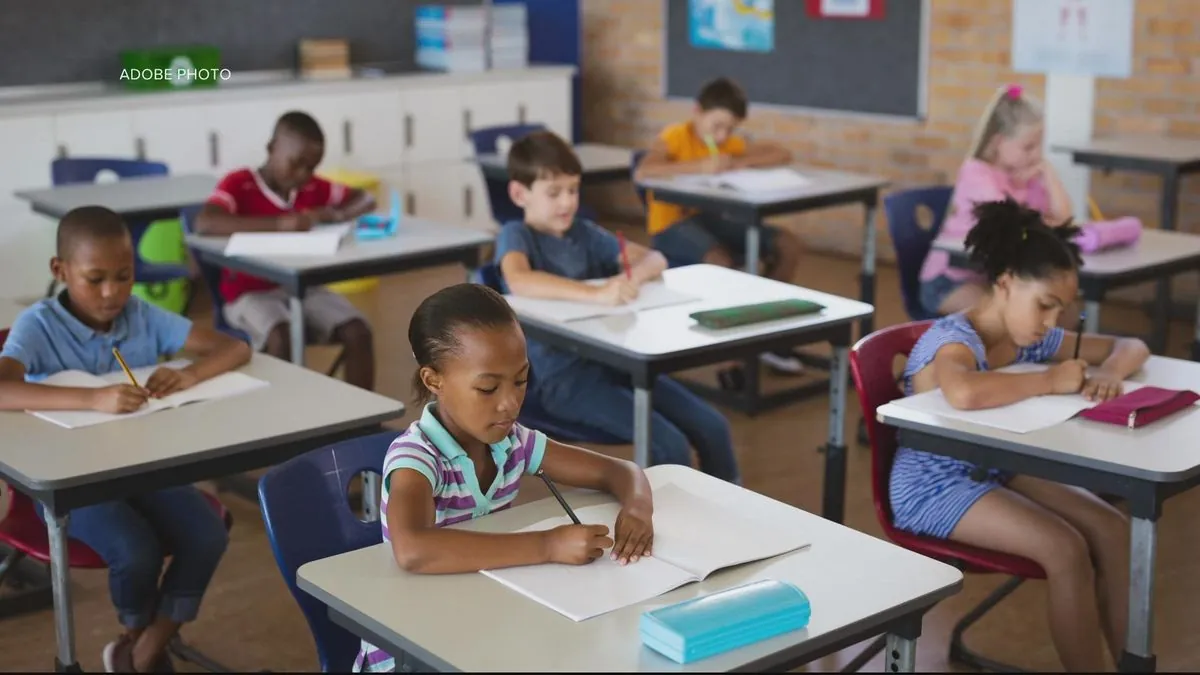D.C. Students Show Modest Gains in Test Scores, Still Below Pre-Pandemic Levels
Recent data reveals slight improvements in D.C. students' standardized test scores, but performance remains below pre-pandemic levels. City leaders are implementing strategies to boost academic achievement.

In the nation's capital, recent standardized test results have shown a slight uptick in student performance compared to the previous year. However, Paul Kihn, the deputy mayor for education, acknowledges that while the improvements are welcome, they are not yet satisfactory.
The data reveals that 34% of students met or exceeded expectations in reading, a marginal increase of 0.3 percentage points from 2023. In mathematics, 22.8% of children performed at grade level, representing a 0.7 percentage point improvement. These figures, while positive, still fall short of pre-pandemic achievement levels.

The introduction of the D.C. Comprehensive Assessments of Progress in Education (DC CAPE) marks a significant change in the city's standardized testing landscape. This new assessment replaces the previously used Partnership for Assessment of Readiness for College and Career (PARCC) exam. Education officials assure that the DC CAPE maintains the same rigor and content as its predecessor.
Some encouraging trends have emerged from the data:
- Improved performance in third-grade reading
- Progress in middle-school mathematics
- Positive impact of high-impact tutoring programs
Antoinette Mitchell, D.C.'s interim state superintendent of education, highlights the success of early literacy initiatives. These efforts include enhanced teacher training and updated instructional materials for younger students.
However, challenges persist, particularly in mathematics. Lewis D. Ferebee, chancellor of D.C. Public Schools, acknowledges the "high hill to climb" in this subject area. Only 28% of elementary students, 22% of middle-schoolers, and 11% of high school students are performing at grade level in math.
To address these concerns, city leaders are implementing several strategies:
- Expanding high-impact tutoring programs
- Forming a task force to develop new approaches for boosting math achievement
- Extending high school geometry and algebra courses from semester-long to year-long
"Every minute of the day counts."
The pandemic's impact on education has varied across grade levels. For instance, sixth-graders were the only middle school group to show improvement in reading scores. These students were in third grade when in-person learning resumed in 2021, highlighting the complex effects of interrupted learning on different age groups.
As the District of Columbia, home to approximately 700,000 residents, continues its efforts to improve its education system, the city faces unique challenges. With its status as a federal district and its division into eight administrative wards, D.C. has implemented various education reforms over the past decades. The city's school choice system, allowing students to attend schools outside their neighborhoods, adds another layer of complexity to addressing educational disparities.
While progress has been made, the road to full recovery from the pandemic's educational disruptions remains long. City leaders remain committed to innovative strategies and targeted interventions to ensure all students in the nation's capital receive a quality education.


































